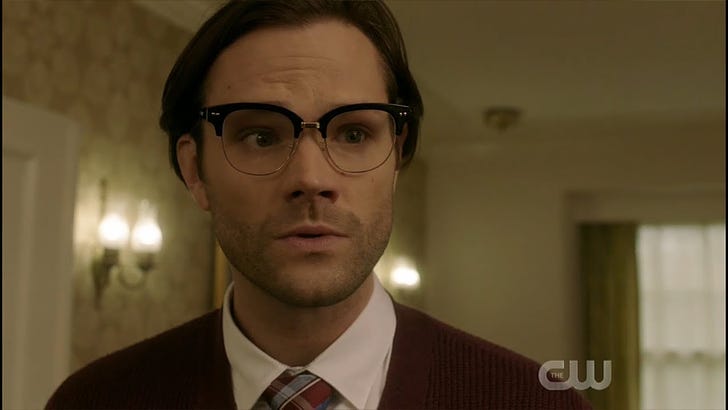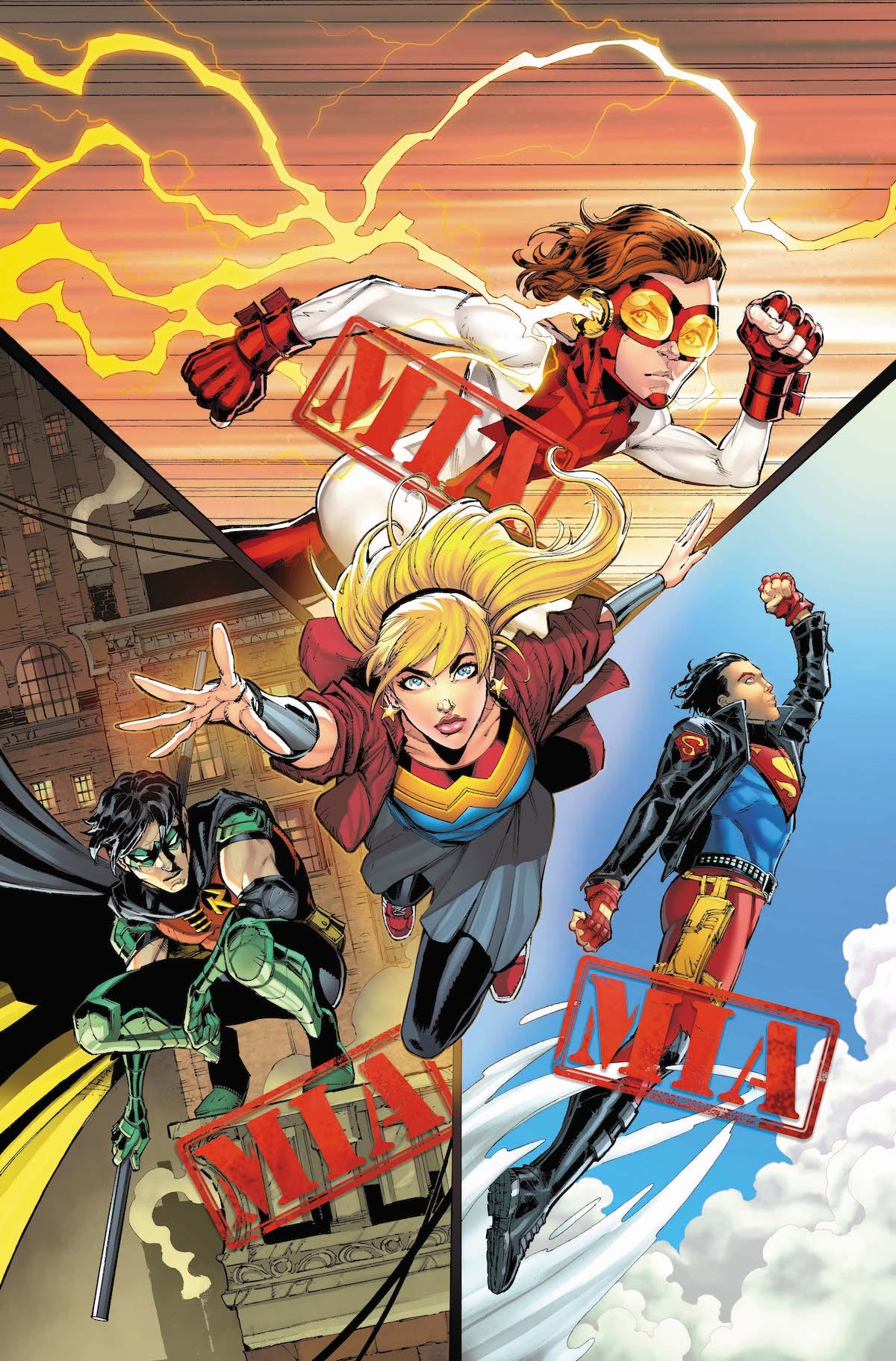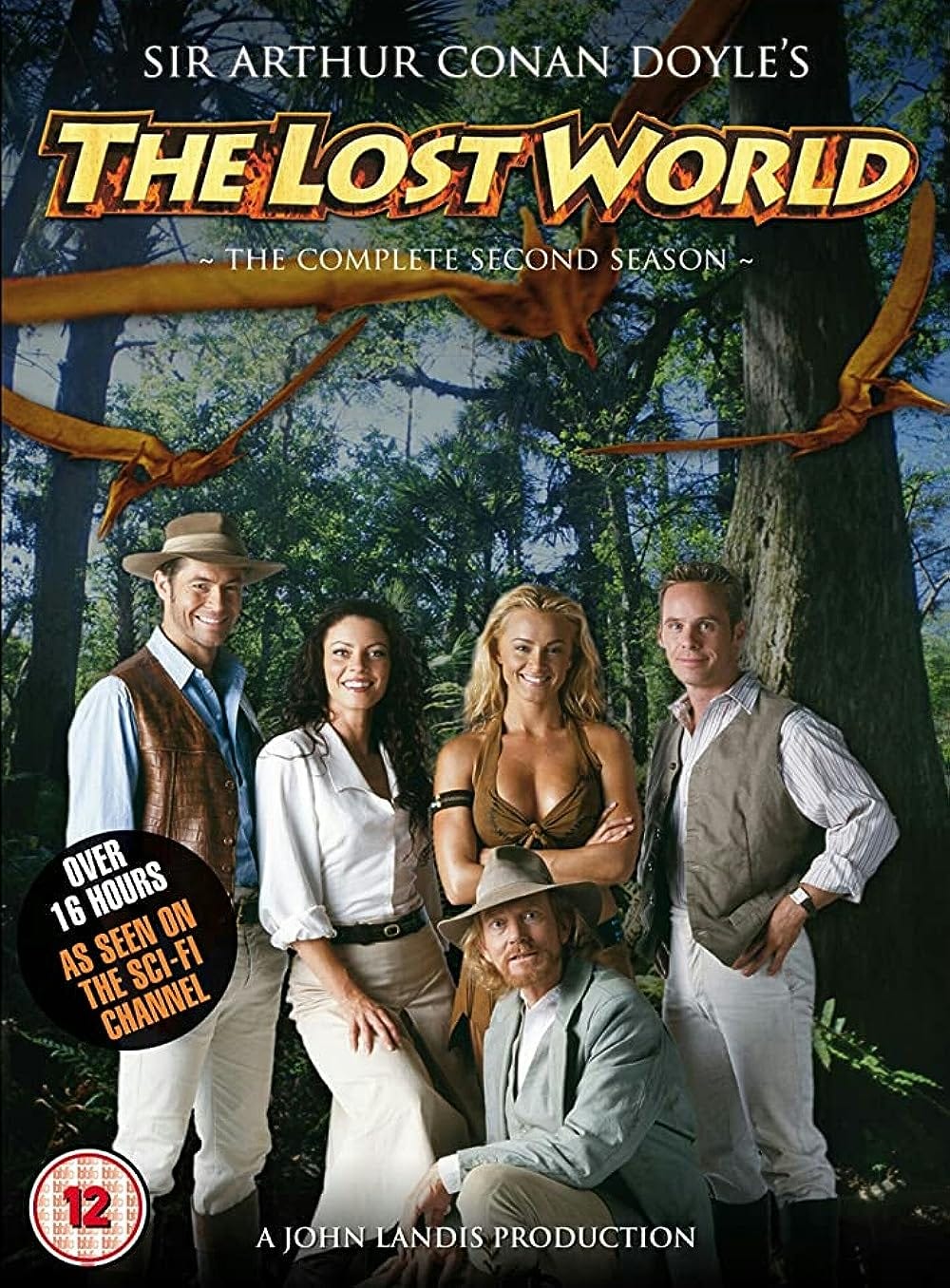WELCOME TO THE LABYRINTH: TV 101
TABLE OF CONTENTS
Available Now!
My Personal History of the Medium
Lessons I’ve Learned Writing TV
Yeah But How Does Writing TV Help Writing Other Things?
Adapting Your Idea Into TV
Premium Preview
The Hobby Report
AVAILABLE NOW!
You can watch JUSTICE LEAGUE x RWBY (that I discussed on my premium content) now on MAX! It’s a fun romp and I’m very proud of it.
You can also now buy the collected edition of Dark Crisis: Young Justice! Hurray!
And now, onto the show…
MY PERSONAL HISTORY OF THE MEDIUM
My family didn’t have a TV until I was 12. They’re religious folks, who didn’t care for things like Sesame Street, due to the strong socialist message. However, this doesn’t mean I didn’t watch TV. Every Sunday, I would find ways to visit at my grandparents’ house, where I would be glued to Cartoon Network, trying to finding the perfect lineup. Was it Superfriends, to SWAT Kats, to Batman: The Animated Series? Was it Real Adventures of Johnny Quest, to Jabber Jaw, to Road Rovers? The best days were when Canadian shows Shirley Holmes and Back to Sherwood aired on Fox Family, or, even better, Big Wolf on Campus.
But it wasn’t until 2003 that my life completely changed.
As a newly minted high school freshman, with low confidence and no idea who *NSYNC was, I wanted to be like all the other kids at my public school. This was Florida right before the housing crash. New developments were being built everywhere, the country was deeply patriotic following 9/11, and we were about to have more hurricanes than we knew what to do with. I was ignorant to all of this. All I wanted to do was to fit in with my friends in the brand new high school building.
So, I made the logical decision to watch MTV between 7am and 8am.
I would wake up at 6am, get myself ready as fast as possible, have the world’s quickest breakfast, then park myself in my parents’ bedroom in front of their TV, out of the way of my family that didn’t have the same dedication to people pleasing. I would look around, make sure no one could see me, then I turned on the TV.
Only, I realised… music videos? Really boring. The songs were fine, but I couldn’t sing them around my mom. What was I going to do? I still wanted to be cool!
I took my precious hour before school and flipped through the channels, hoping to land on something interesting. And that’s how I found what became my saving grace. My first fandom. The Lost World.
You’ve probably never heard of The Lost World, unless you too were watching TNT at 7am in 2003. Nestled between reruns of Charmed and Saved by the Bell, The Lost World was a Canadian coproduction with Australia that went into syndication soon after getting cancelled in 2001. I didn’t know any of that at the time. All I knew was that this show contained a love/hate relationship, episodic monsters, and a woman with curly hair, just like mine. To this day, it’s still my favourite TV show, even if few people ever remembered it existed. It showed me how exciting stories can be, how all encompassing, how thrilling. It felt like magic inserted directly into my eyeballs. And I’ve been chasing that feeling ever since.
LESSONS I’VE LEARNED WRITING TV
Boy, there are a ton of lessons you learn when writing TV. And the truth is, you never stop learning. It is also a truth universally acknowledged that tons of people on the internet have written loads of information on this topic, and I encourage you to read everything you can from folks who are much smarter than me.
But what lessons I can give you, I offer freely.
The first lesson: Writing for TV is not a way to get famous. If you are on the writing staff of a show, you are serving at the pleasure of the show. This includes the Showrunner, though they are the boss and it is their vision. At the end of the day, we’re all just trying to keep the trains running on time.
That doesn’t sound very artistic to some, but I would argue it’s because those people don’t have an interesting imagination. Because the second lesson: limitations make you a better writer. Sixty pages for a drama pilot or thirty pages for a comedy pilot is not really a lot of real estate. It’s even less when you’re writing on a network show with ad breaks. When I was writing on Supernatural, we had to bring our scripts in at 44 pages, though 42 was preferred. You start to realise how little time that is, and how succinct you must be. Make it cool, make it big, make it emotional… but make it come in on time.
The third lesson: Don’t be precious. If it’s not your show, you’re going to get rewritten. The goal is to NOT get rewritten eventually, but it happens. To EVERYONE. And not only that, but sometimes, people may not have the same taste as you. That’s also okay. My favourite story to tell is one of the worst moments that ever happened to me on Supernatural. I had just come back to the office in LA after being on set shooting my very first episode in Vancouver (14.15 Peace of Mind). I was still an assistant, so I was back at my desk, doing my job, and I was getting my boss (the Showrunner) on the phone for a call with our office on set. We had to wait for someone, so I put myself on mute… which is when I heard one of the heads of departments shit talking my episode to one of our directors! And he seemed to not realise I was still on the phone! I let it go on for a few seconds, before someone came back in, realised what was happening, and told me that they were ready to patch my boss into the call. THE DEAD SILENCE ON THE PHONE. Now, it makes me laugh. At the time, I did not find it as funny. But the truth of the matter is… that happens? That’s life? Sometimes people don’t like your stuff. Or they don’t have grace for you. They don’t see what you’re trying to do, or they don’t care. None of that matters. What matters is how you handle it. Because the true lesson in this, is that writing for TV is a long game. It’s not about how you’re feeling in the moment. It’s about learning, growing, and shaking off those moments. You learn and move on.
HOW DOES WRITING TV HELP WRITING OTHER THINGS
TV is a hard gig to get into, and increasingly harder as the industry constricts. At the time of this writing, WGA and SAG-AFTRA are currently on strike, due to the current struggles in this industry.
So, if you are lucky enough to write for TV first, what lessons can you take to other mediums?
Decision making. In TV, decisions are made fairly quickly. Even if you’re not writing while production is taking place, things move swiftly, and decisions have to be made. This is incredibly important when it comes to every other medium. You have to make quick decisions with little time to think or second guess yourself. Even if you wish you could make a different choice, you stand by the choice you made, and then move on.
Support your staff. This goes back to the first lesson I learned, you’re not a superstar. You are all there to make the best show you can. No screwing anyone over. This is important for all mediums. You’ve got to remember that you’re creating something with artists, editors, animators, sound designers, actors, composers, etc. Everyone wants to be proud of the work they do. You are not more important than anyone else on the crew.
Scene work. Had to have at least one lesson on writing! And I think I’ve learned the most about what works in a scene from TV. Because TV moves so quickly, and has to be so focused. Take a scene from your favourite TV show and break it apart. What are the characters thinking? Feeling? What is the goal of the scene? TV scenes have been the easiest to hone in on something that I think spans all mediums.
ADAPTING YOUR IDEA INTO TV
All right, so, you’ve got your IP, the holy grail of TV. You’ve written a comic, an audio drama, a book, and someone wants to buy it! Or, you’ve bought someone else’s IP that you really believe in and you want to adapt it! Either way, adapting IP to a TV format is huge at this moment. So, what are the important things to remember?
You’re not going to get everything right. Know what you’re going to fight for in the adaptation and what you’re not. It is incredibly important for representation to keep a character’s ethnicity, but not always important that they have the exact hair colour mentioned in the book or comic. Also, you’re able to get across more information in comics, animation, and audio. The information is different in TV or film, and it’s often not important. My advice is always to make sure you keep the tone and intent of the story, even if you have to fudge the details.
Have an engine. So many people aim to write their story for TV because it’s a fancy medium, and they’ve been told that’s where the money is. And, in some ways, that’s true! But that doesn’t mean you don’t need a damn good reason to tell your story as a TV show rather than another form of media. I love having the same project in different mediums, because it forces me to ask myself, ‘What is important that I can say in TV that I couldn’t in comics’ and vice versa. Just because you like TV does not make your idea a TV show. This is less seen more and more, due to short orders in TV, but I always encourage you to know what your “engine” is. How are you getting 100 episodes out of this idea? And if you’re not, you’ve got a movie.
Be aware, but not Twitter friendly. If you’re adapting something that isn’t your property, know what they fandom likes and dislikes, but do not pander. You’re not writing for Twitter, you’re writing for your characters.
Take the time to tell the story. I used to put all the information in the pilot episode, because that’s what everyone said to do! Hook ‘em, make sure to not keep anything from the reader — but that’s exactly how you get an incredibly bloated script. Remember that 45-60 pages is not a lot of space. Take your time. Adapting a book? Think about the first episode just being the first chapter. Adapting a comic? The first episode may be the first half of the first issue. Don’t feel like you have to add in everything, you will alienate your producer and your audience.
PREMIUM PREVIEW
As previously mentioned, my first episode of TV was Supernatural Season 14x15 - Peace of Mind. The scene I will be discuss? The famed JUSTIN SMITH scene! I’m so excited to dive into this scene, both Misha and Jared knocked this whole episode out of the park. Make sure to subscribe to paid membership for this!
THE HOBBY REPORT
Unfortunately, I am quite sick, so I don’t have much to report this Hobby Report. I’ve been knocked out by a summer cold that I have no idea how I got. Couldn’t have been because we traveled from London to LA, then to San Diego for SDCC, then back to LA, and we are now going back to London on Sunday. (That was sarcasm, this cold is definitely because of all of that.) In between all of that, I’ve been doing all my doctor visits before my insurance runs out. The life of a freelancer! Most of it has been good news, but incredibly taxing on my exhausted body. In other news, make sure you’re going to the dentist and the dermatologist!
For August, I’m thinking of going REALLY basic and trying knitting! I’ve stayed away from knitting for a long time, mostly because I’m horrible with knots. However, TikTok has convinced me that I might be able to do something called a Tunisian simple stitch? Who’s excited to get scarves for their holiday presents?
That’s all for now! Until next month,
Meghan Fitzmartin







